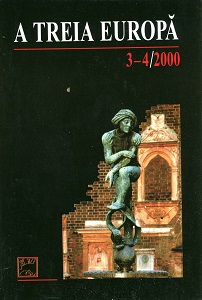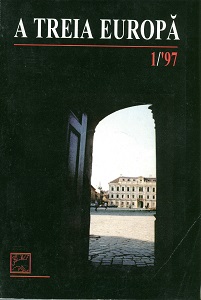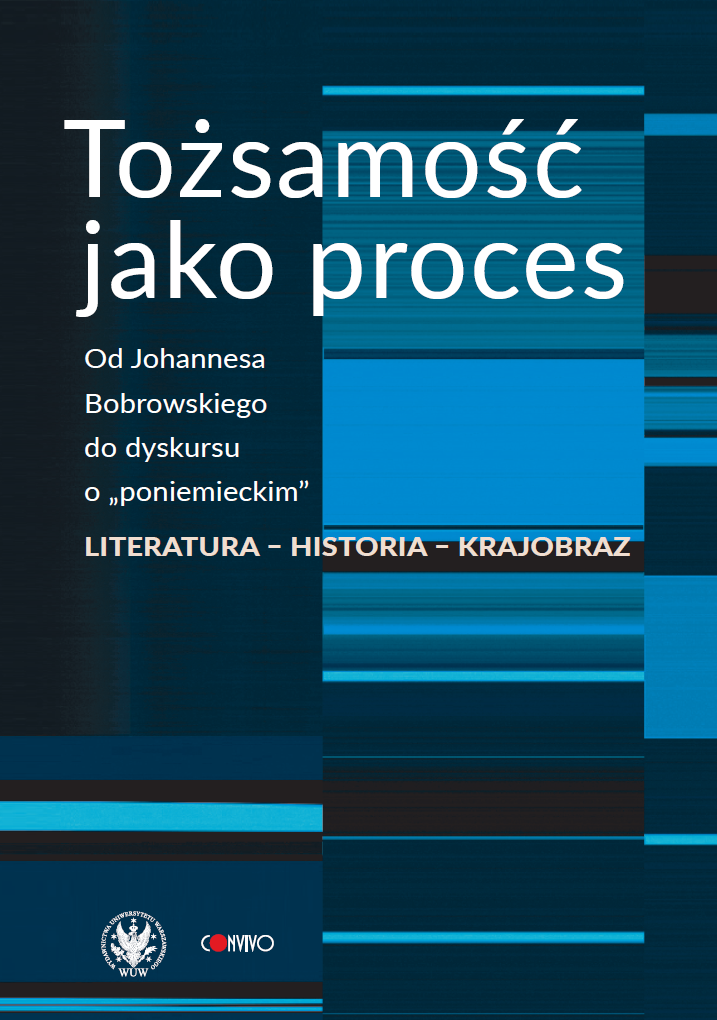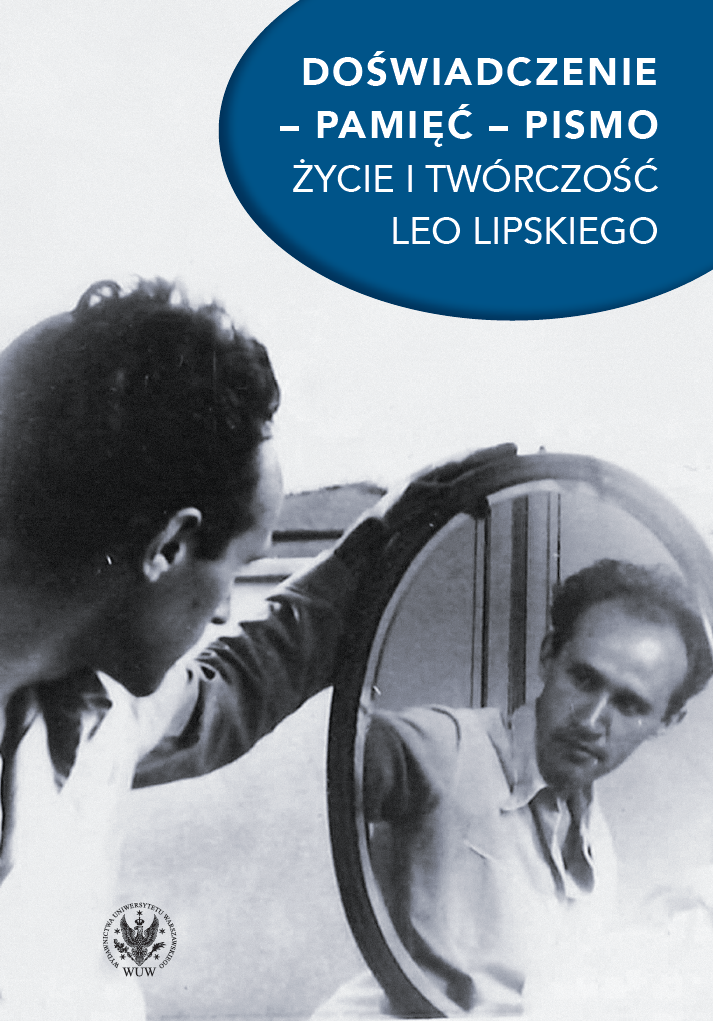
We kindly inform you that, as long as the subject affiliation of our 300.000+ articles is in progress, you might get unsufficient or no results on your third level or second level search. In this case, please broaden your search criteria.


Cu un an înainte de apariția volumului Sanatoriul timpului (1937), Bruno Schulz a publicat eseul Mitizarea realității (1936)1, care avea să devină bază a majorității exegezelor critice. De altfel, J. JarzQbski, excelent cunoscător al prozei avangardiste, în prefața la volumul Citindu-l pe Schulz (Czytanie Schulza)12, în care stabilește trei etape de receptare a operei scriitorului polonez, afirmă, printre altele, că „locul central în analiza acestei opere l-a ocupat mitologia - cheie universală pentru sensul lumii”, cercetătorii din generația mai nouă pornind tocmai de la eseul sus-menționat, considerat „cel mai important text programatic al scriitorului”. într-adevăr, se poate spune că aproape toți exegeții de seamă n-au putut trece indiferenți pe lângă acest aspect esențial și original al operei schulziene, oferind interpretări și comentarii menite nu numai să adâncească înțelegerea și deslușirea textului, ci și să extindă semnificativ sfera conotativă a conceptului de mit în sine.
More...
„Ă la recherche...” Anul 1920, Zakopane. Eram elev în clasa a Vl-a a gimnaziului de aici. Am salutat cu mare bucurie reîntoarcerea la vechea și liniștita clădire „Liliana” după o pauza de doi ani, cât m-am aflat la părinții iezuiți din Chyrow. La Zakopane am întâlnit colegi și prieteni mai vechi; în plus, îmi plăceau tare mult munții Tatra.
More...
Poetul Max Hölzer stă cu mine la o măsuță, la „Zuntz”, pe geam privim albul strălucitor și neoanele somnoroase de pe Kurfurstendarmm, el se plânge, zice, la naiba, am avut atâția filozofi, oameni de artă, care n-au admis să privească nimic altceva decât problemele existențiale cele mai importante, de bază, pe când azi, mă întreb, unde a dispărut specia acestor grands seigneurs, literatura noastră tot rumegă războiul și pe Hitler, și politica tot revine la răfuielile dintre democrație și dictatură, la aceasta ni s-a redus genialitatea.
More...
The aim of this work is to establish what collective identity is from a linguistic perspective. We assume that identity is an important research object if seen as a kind of a specific type of language communication and shared knowledge. Thanks to this knowledge an individual becomes aware of their own distinctiveness and belonging to community. The findings are of theoretical, ordering and designing character. We base our reflections on ethnolinguistics, cultural linguistics, text and discourse linguistics. In the first part of the article we present the arguments for the communicative-linguistic character of collective identity, looking at it from the perspective of sign and code. In the second part, we refer to the rich experience of linguists and present various research methods applied in identity research from the perspective of sign and code.
More...
In this memory sketch the author presents his experiences connected with reading Johannes Bobrowski’s books, shows his own attitude to important events of the second half of the 20th century and indicates how he was influenced by Bobrowski’s works. He recalls seminars held for foreign students in Germany and abroad, indicating how different and depending on political and social circumstances the reception of the works by the "Levin’s Mill’s" author was. In the last part of the essay, the author refers to the book "„Dies Kind soll leben“ Die Aufzeichnungen der Helene Holzman 1941-1944" by Margarete Holzman and Reinhardt Kaiser on the holocaust of the Jews from Kaunas. Kaunas was an important town for Bobrowski, it was present in several of his poems, and the poet himself reminds the author of the sketch a young soldier from Holzman and Kaiser’s book.
More...
The article reconstructs selected aspects of the Sarmathian myth in the works of Johannes Bobrowski. The author of the Sarmatische Zeit, referring to the works of Ptolemy and Herodotus, presents his own experiences connected with the books on the Romantic myth of the North and creates a literary project of a community, whose part is also the area known as East Prussia. The traces of this project – motifs in Bobrowski’s poems and prose – are the object of interpretation in this sketch. They also point to a certain literary affinity between the German writer and Adam Mickiewicz.
More...
The article attempts to prove the thesis that Johannes Bobrowski’s "Levins Mühle" is part of modern identity project undertaken by the German writer. The author of the article analyses the style, syntax and structure of the narrator, which are used to undermine the formation of the cool and stable picture of the world. These issues are addressed in relation to the circumstances which shaped Bobrowski’s stance: his coming of age on the border of nations and cultures, as well as the context of emerging and formed nationalism and the World War II. The author uses such interpretative tools as anthropological theory of initiation and trickster and those applied in psychology of identity.
More...
The article analyses The Report, a poem by Johannes Bobrowski, which is a poetic commentary on the photograph of Jewish guerrilla forces, taken after their escape from the transport to the Bajli Gelblung camp and during the interrogation by German officers. Detailed studies of different versions of the photograph, functioning in German, Swiss and French wartime newspapers, along with the signatures and the reprinting in the book edited by Gerhard Schoenberner in 1960, allow to uncover new circumstances of the woman’s arrest and look closely at the specifity of the poem by Bobrowski, which stands out against his other lyric poems.
More...
The article attempts to isolate several trends in the development of nationalistic attitudes in East Prussian German literature on selected examples. It analyses such works as: "The Artus Court" (Dwór Artusa) by E.T.A. Hoffmann, "Die Wiederherstellung des Schlosses der deutschen Ordensritter zu Marienburg" by Joseph Eichendorff, as well as the historizing works of Ernst Wicher ("Heinrich von Plauen") and Felix Dahn ("Kampf um Rom"), which glorified German past in the name of the idea of the nation.
More...
The text analyses the archive script of a German propaganda film against the Polonization of East Prussia. The film from the 1920s documents two existing historical narratives: Polish and German. Although in some places they are contradictory, they form a complementary picture of the Polish-German relations as a whole. Both in Polish and German historiography the interpretation of historical facts was subordinated to historical policy. The text analyses German and Slavonic founding myths of Prussia, the white and black legend of the Teutonic Knights and its revival in the 20th century, the examples of historical heroizaition, the omission of indigenous population in the historiography of both countries and Europe in the 1920s propaganda.
More...
The article concentrates on the identity function of the Masurian landscape. It analyses its idealisation in German literature of the interwar period and its nostalgic character in the memoirs from sentimental journeys. For the visitors the landscape is a link between historical East Prussia and the modern region of Warmia and Masuria. As a recognizable distinguishing feature of the region, its landscape is one of the most beautiful in Europe, comparable to those of Provence and Tuscany. The text also describes the changes in the landscape resulting from the migrations after World War II, the economic policy of the Polish People's Republic and the development of tourism in the 21st century, which led and lead to the irreversible devastation of the landscape.
More...
The article shows the identity problem of native, bilingual inhabitants of Masuria in relation to the languages they use. It is based on language biographies reconstructed using the interviews recorded during the field research as part of the international research project LangGener. The aim of the research financed by NCN and DFG was to capture differencesin the occurrence of mutual influences within bilingual morphology and syntax in the speech of representatives of two different generations of bilingual persons with regard to socio-linguistic conditions. The article presents original utterances in German and Polish, which show the interlocutors’ experiences connected with language policy on the territory incorporated into Poland after 1945.
More...
The paper examines the occurrences and contexts of the pronouns "nasz" and "naski" in the statements of the autochthons from the Warmia and Masuria region. It treats them as linguistic signs of a sense of belonging to a community. It identifies and describes various aspects of this belonging: the relationship with the land and nature, the past, the language, the religion and the system of values shaped by it, the state and its institutions, as well as the dispersed community of the Masurians and Warmians after World War II.
More...
The text discusses the myth of the “Regained Lands” in the Polish People's Republic and contemporary Poland, as well as the historical policy of the Federal Republic of Germany, which was shaped by the Federation of Expellees and subsequent German governments since 1949 until today. In the first part of the text the author describes the genesis, development and revision of the founding myth of the Polish People's Republic in historical context. He recalls the "Message of the Polish Bishops to their German Brothers in Christ" of 1965, Jan Józef Lipski’s thought referring to the critical tradition of Polish patriotism, formulated in 1981 in the essay Two Homelands, Two Patriotisms” and the idea of open regionalism and the Atlantis of the North developed by Olsztyn intellectuals centered around the Cultural Community “Borussia”. The second part of the text analyses historical policy and German memory culture in relation to the 1951 Card of the German Expellees, eastern policy of Willy Brand in the 1970s and the institutionalization of the memory of expulsions through the establishment of the Berlin Documentation Centre in 2021 and controversies surrounding it. The text is a preface to the interview conducted with Karolina Kuszyk, the author of the book "Poniemieckie" in 2021 during the conference “Identity as a Process”.
More...

The author of the article attempts to look at Lipski’s works from the perspective of scattered and abandoned works, versions and projects for some larger works, unfinished drafts, notes and memos, which were left by Lipski like a quaint archive of peripheral texts. The works called by Lipski himself “egotics” constitute its important part. A micrological reading of one of them, titled "Inny skrawek nocy", shows the most significant semantic elements of the text, pointing to their continuation and realization in Lipski’s works.
More...
Using Lipski’s novel "Piotruś", the author analyses narratives introduced to Lipski’s prose as a story within a story, like substories heard by the narrator-hero or like his own memories, recurring in his mind or told to the others. She argues that the substories stem from the meeting of the past with the present of the after-war world, which has lost its old framework, but has not established the new one. Substories – thanks to their fragmentary, digressive, open character – make the form of the whole work broader, corresponding to the images of the world without a model description. They show the narrator-hero suspended between the traumatic past and unwanted, devoid of future prospects, present. The “past presence” (a term by Reinhart Koselleck) is of special importance in those narratives.
More...
The article analyses the experience of disgustingness in Leo Lipski’s "Piotruś". This micronovel is interpreted as a multi-level narrative about repulsion, constitutive of perceiving the world and the importance of physicality, sexuality and identity. "Piotruś" records the functioning of affection: the representations of tastes, smells or physiological functions are simultaneously marked by repulsion and fascination. Using the images of excretion, bodily secretions or vomiting, Lipski attempts to describe the crisis and trauma of subjectivity. The affection becomes a way to describe and feel not explicitly expressed phantasms. Repulsion is also present in Lipski’s descriptions of Jewish rituals and customs. The main hero in Piotruś is “neither subject nor object”, and contact with him makes other characters – and the readers - review their previous beliefs about various aspects of human life. The theoretical context for the proposed analysis is provided by the works of Julia Kristeva, Mary Douglas and Sara Ahmed.
More...
The article presents a number of findings concerning Leo Lipski’s biography, based on unexplored archival materials. The author indicates German as a native language of the writer, looking at the textual functionalities of the problem and reconstructing Lipski’s relationships with the German cultural circle and arguing that the person who directly contributed to the German translation of "Piotruś" was Adolf Opel. It was Opel who made his partner, Ingeborg Bachmann, interested in Lipski’s writing. Citing the latest archival discoveries, the author briefly discusses the surviving collection of Lipski’s letters to the Austrian writer.
More...